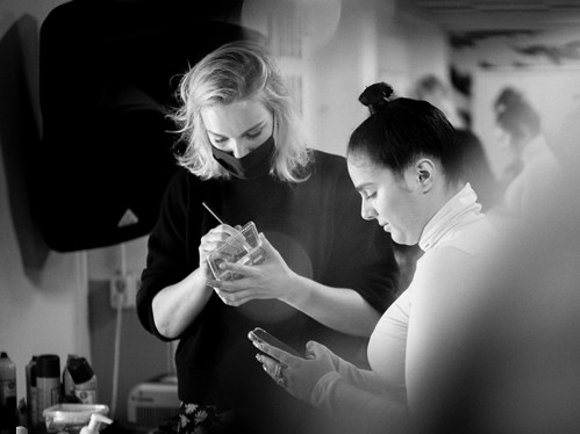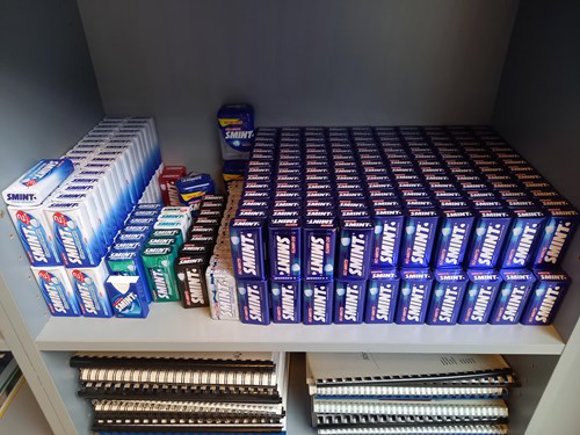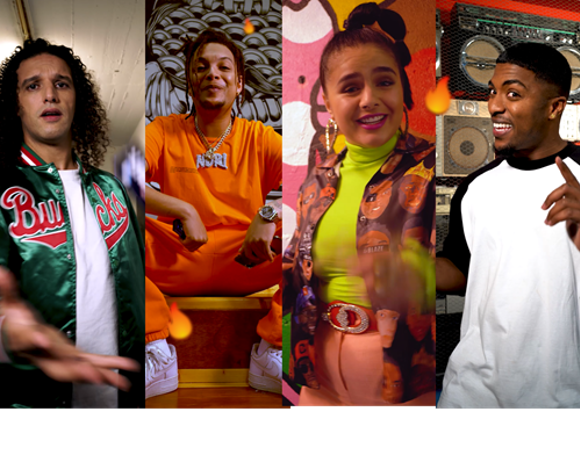Why did we start a project without a client behind it?
We are a digital agency that works with innovative technologies and new media. That’s why our team consists mostly of "digital natives" who are noticeably young.
In recent years we’ve noticed something strange and concerning. At least something I couldn't remember from my own adolescence.
Graduates go to their first job with a lot of energy and motivation. But we noticed that these young people, much more than in the past, more frequently deal with stress or even a burnout. This is something I could not remember from the start of my career.
We built DotControl on the principles of happiness. Both externally and internally. So, we are genuinely concerned when young employees experience stress at such an early stage.
This was a reason for us to start an investigation into this "problem".
We found the issue so important, we decided to take matters into our own hands. This was something we had to work on it on our own initiative, not from a client’s request.
Social media and negative self-esteem
Over the past ten years, social media has begun to take on a different role in our lives. Research by "One Today" shows that more than half (52%) of young people spend at least three hours a day on social media. There would be nothing wrong with this, if it was not for one. thing.
Unobtainable success stories from influencers are making youngsters feel inadequate, forever comparing themselves to unrealistic images of achievement. Young people look up to these online role models, without seeing the true struggles these influencers go through to achieve success in the first place. And the research shows that the issue is worse for adolescents between the ages of 10 and 15, when they are at their most impressionable – and when a negative self-image can be formed for life.
You might ask “What is different about media today and 10 years ago?”
In the past, seeing someone on TV meant you were probably watching a celebrity. Someone far from your own reality. Nowadays, you can follow any average Joe in the world on social media. Which is where they share their daily live with you. That is why it seems like you know them, and you take part in their lives. And their lives are simply perfect there! This makes you feel like your life is not good enough and you are striving for this perfect picture. But it’s not real.

Artist Numidia getting her makeup done while texting on her phone backstage at WordSMINT. Photo credits to Leon Hendrickx
How did we partner up with Smint?
Smint has been profiling their mints as a product that boosts your self-confidence since the dawn of the brand. Remember the commercials with the tagline "No Smint, No kiss!"? Today they deliver on this promise with the payoff "Smint! Boost yourself! ". So, there was a logical connection. Our gears were starting to move.
We realized we also had a different connection: this nice, blue brand actually played a role in our office for quite some time now. We eat a lot of "Smintjes" and have been collecting the Smint cans for years. They’re proudly on display on our bookshelves; our very own modern-art masterpiece.
Taking this all into consideration, it was clear to us that we had to create something really cool that boosts youngsters’ confidence and pitch it to Smint.

The SMINT modern art masterpiece
So, what’s WordSmint?
In one sentence, WordSmint is an AI-based app which lets youngsters express themselves by rapping or singing and get real-time feedback from their idols to boost their confidence.
The idea is to get teens off their social media feeds and use the app to rap or sing over a beat. Expressing their feelings, emotions and problems in a safe space. A space where vulnerability is encouraged.
In return, they get highly personalised feedback from their musical idols: Dutch hip hop titans Ronnie Flex and Ali B, Numidia and Poke. No conspicuous consumption, no swagger, no showboating – only encouraging comments, praising users’ unique creativity, flow and feeling.
The app was created using extensive research with adolescents all over the Netherlands. Testing showed that Gen Z wants positive but constructive feedback, true both to their values of authenticity and freedom to express originality.
By linking algorithms to innovative voice technology, the app analyses texts for creativity, sentiment, flow and much more This data is automatically linked to the artist who fits best. The artist then helps the talent to develop further.

Featured WordSmint hip-hop artists: Ali B, Ronnie Flex, Numidia, and Poke
What's in it for Smint as a brand?
This project shows that Smint dares to embrace a non-commercial concept. You don't have to buy Smint to play the app. But the app itself is a solid proof of the brand promise "Boost Yourself!".
Without Smint's trust, this idea would have never seen the daylight. Their role is therefore enormous. So is their opportunity.
The changes in the media landscape over the last 10 years have made brands much more democratic. The opinion and voice of the consumer has become much more valuable, and that is fantastic!
This also means that brands must communicate differently to create fans. We believe that as a brand today you no longer get fans by just asking them for something (advertisements). As a brand you also must make a positive contribution to the society.
Even if you do not immediately earn money from it. Because by making a positive contribution to someone's life (without asking anything in return) you create a bond. A bond makes fans.
Parts of this article have been taken and translated from the March 2021 edition of Fonk Magazine.
